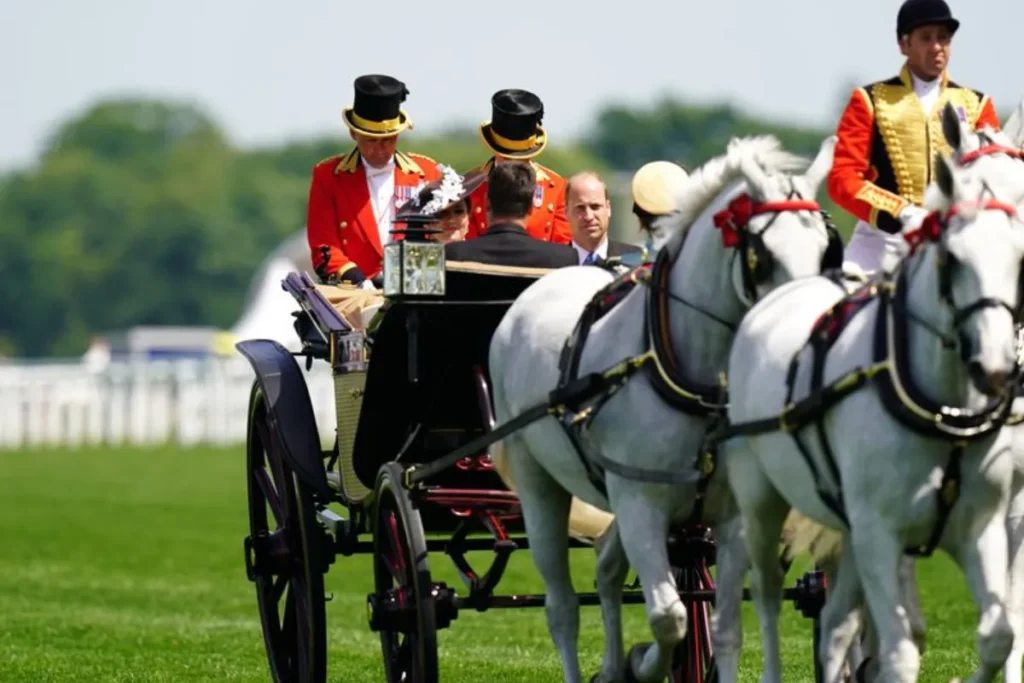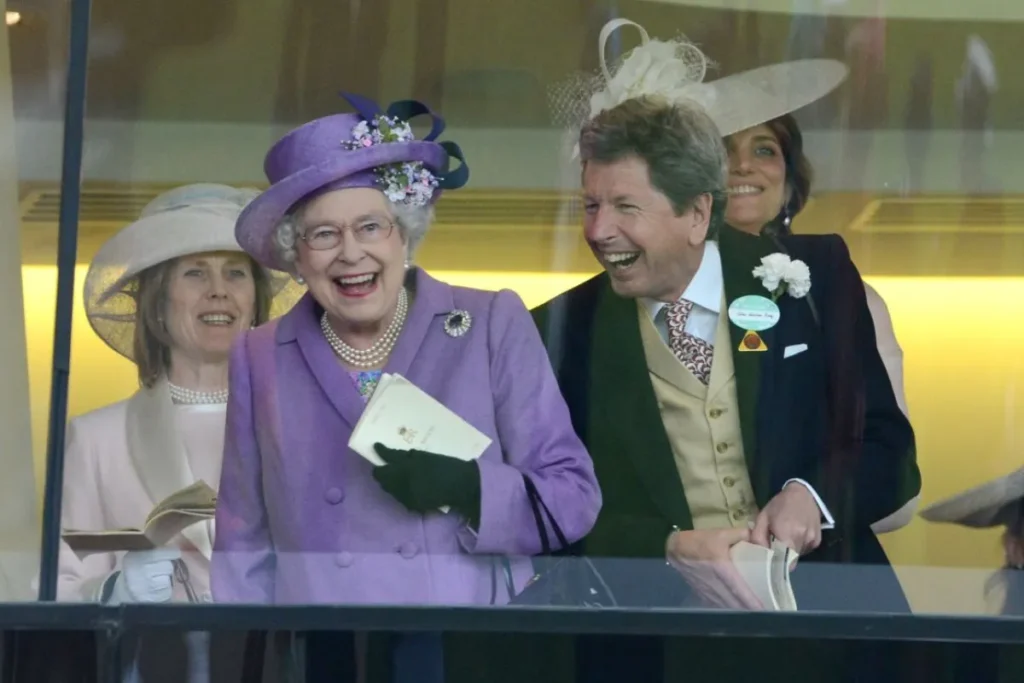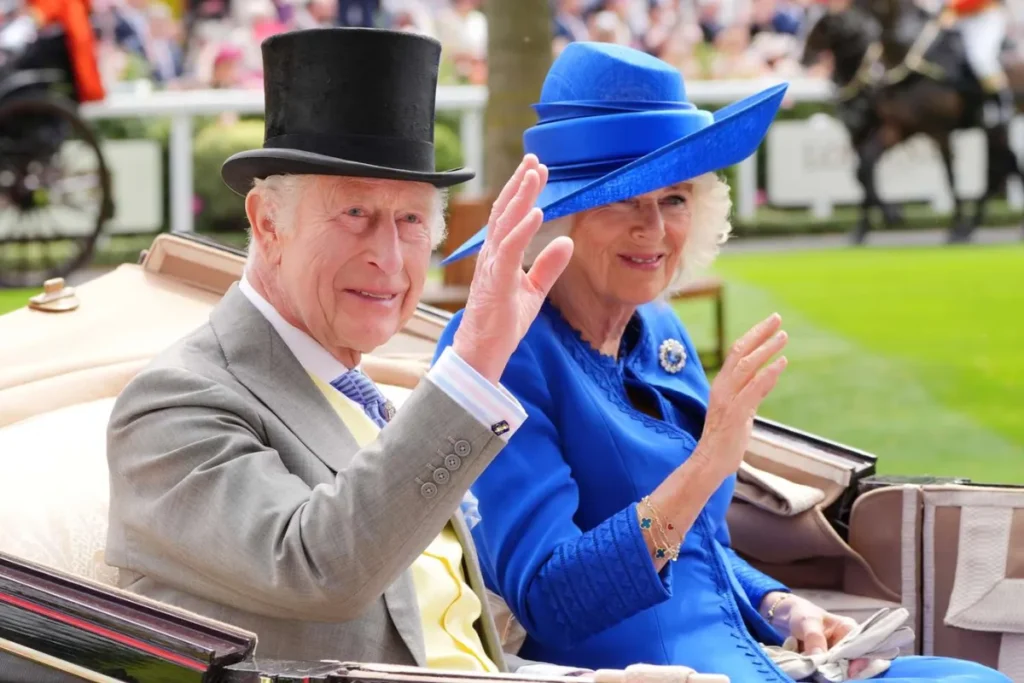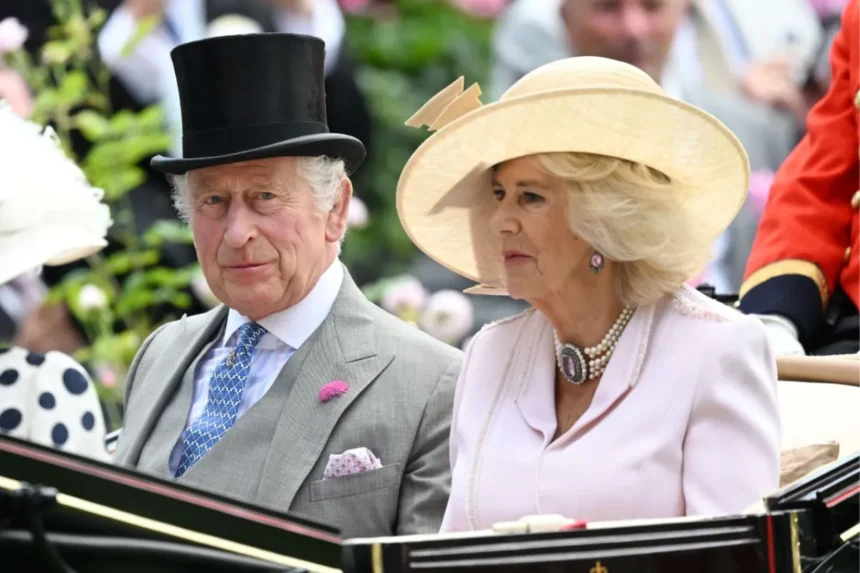Royal Ascot, one of the most prestigious events in the British social calendar, has long been associated with the British monarchy and the grandeur of horse racing.
This year, the event took on an even more significant meaning as King Charles III took the reins, leading the festivities with the same charm and dignity that have defined his reign.
The 2024 Royal Ascot was not just a showcase of top-tier horse racing but also a celebration of tradition, fashion, and the enduring bond between the monarchy and this iconic event.
A Historical Overview of Royal Ascot
Royal Ascot dates back to 1711, when Queen Anne founded the event. Since then, it has evolved into a symbol of British elegance, attracting the elite from around the world.
Held annually at Ascot Racecourse in Berkshire, this five-day event combines the thrill of world-class horse racing with high society’s most glamorous social gathering.
The presence of the British royal family has always been a highlight, adding a touch of regal splendor to the occasion.
King Charles III: A New Era
King Charles III’s ascension to the throne brought with it a renewed interest in the royal family and their public engagements.
Known for his deep sense of duty and commitment to various causes, King Charles III has been an active figure in promoting environmental sustainability, heritage conservation, and cultural preservation.
His leadership of the Royal Ascot festivities marked a significant moment in his reign, symbolizing continuity and a deep respect for tradition.
Day One: The Royal Procession

The first day of Royal Ascot 2024 began with the traditional Royal Procession, a time-honored ceremony that sees members of the royal family arriving at Ascot Racecourse in horse-drawn carriages.
King Charles III, accompanied by Queen Camilla, led the procession to the cheers of an enthusiastic crowd.
The spectacle of the procession, with its pomp and pageantry, set the tone for the days to come.
Dressed in impeccably tailored morning suits and elegant dresses, the royal family embodied the event’s sophisticated ambiance.
The King’s presence at Royal Ascot underscored the monarchy’s enduring connection to this historic event, reminding spectators of the traditions that have shaped British society for centuries.
The Thrill of the Races
At the heart of Royal Ascot are the thrilling horse races, featuring some of the finest thoroughbreds from around the world.
King Charles III, an avid supporter of equestrian sports, took a keen interest in the races, often seen discussing the finer points of horse breeding and racing with experts and enthusiasts alike.
This year’s races did not disappoint.
Highlights included the Queen Anne Stakes, the King’s Stand Stakes, and the Gold Cup—each race showcasing the speed, strength, and elegance of the participating horses.
The King’s enthusiasm for the sport was evident as he presented trophies to the winning jockeys and owners, celebrating their achievements with genuine joy.
Fashion at Royal Ascot

Royal Ascot is as much about fashion as it is about horse racing.
The event is known for its strict dress code, which requires attendees to don formal attire, with top hats and tails for men and elaborate hats and dresses for women.
This year’s event saw a dazzling display of sartorial elegance, with fashionistas and celebrities vying to make a statement.
Queen Camilla, known for her sophisticated style, wore a series of stunning outfits that captivated fashion critics and spectators alike.
Her ensembles, characterized by exquisite tailoring and elegant accessories, set the tone for the event’s fashion trends.
King Charles III, too, was a picture of elegance in his classic morning suits, embodying the timeless charm of British aristocracy.
A Focus on Sustainability
Under King Charles III’s leadership, Royal Ascot 2024 also emphasized sustainability and environmental stewardship.
Known for his long-standing commitment to environmental causes, the King ensured that the event incorporated sustainable practices.
From eco-friendly transportation options to waste reduction initiatives and sustainable catering, this year’s Royal Ascot set new standards for green events.
The King’s advocacy for sustainability was evident in his speeches and interactions with attendees.
He highlighted the importance of preserving natural habitats, supporting ethical horse breeding practices, and reducing the environmental impact of large events.
His leadership in this area resonated with many, reflecting a modern approach to royal duties that blends tradition with contemporary values.
Charitable Initiatives

In keeping with Royal Ascot’s tradition of philanthropy, King Charles III used the event as a platform to raise awareness and funds for various charitable causes.
The King’s Charitable Foundation partnered with several organizations to support initiatives focused on healthcare, education, and environmental conservation.
Special events and auctions were held throughout the week, encouraging attendees to contribute to these worthy causes.
One notable initiative was the Ascot Charity Auction, which featured exclusive items and experiences donated by celebrities, athletes, and artists.
The auction raised significant funds, which will go towards supporting community projects and conservation efforts, aligning with the King’s vision of using his platform for the greater good.
The Cultural Significance of Royal Ascot
Royal Ascot is more than just a sporting event; it is a cultural phenomenon that reflects the essence of British heritage.
The presence of King Charles III at the helm added a deeper layer of significance, bridging the past and present.
His participation underscored the monarchy’s role in preserving traditions while adapting to modern times.
The event also served as a reminder of the unifying power of shared experiences.
People from diverse backgrounds came together to celebrate, creating a sense of community and continuity.
The King’s approachable demeanor and genuine interest in the attendees made Royal Ascot 2024 a memorable occasion for all.
Reflections and Future Prospects

As the final race concluded and the last carriage departed, Royal Ascot 2024 was hailed as a resounding success.
King Charles III’s leadership brought a renewed energy to the event, reinforcing its status as a premier fixture in the British social calendar.
His commitment to tradition, coupled with a forward-thinking approach to sustainability and philanthropy, set a positive example for future generations.
Looking ahead, the future of Royal Ascot under King Charles III’s reign appears bright.
His passion for equestrian sports, combined with his dedication to environmental and social causes, promises to keep the event relevant and impactful.
As he continues to lead with grace and wisdom, the legacy of Royal Ascot will undoubtedly flourish, maintaining its place as a cherished British institution.
Conclusion: A Royal Celebration
King Charles III’s role in leading the Royal Ascot festivities in 2024 was a celebration of tradition, elegance, and the enduring spirit of the British monarchy.
The event showcased the perfect blend of history and modernity, highlighting the King’s commitment to preserving the past while embracing the future.
Through his leadership, Royal Ascot remains a symbol of British heritage, capturing the imagination of people around the world.
In the years to come, Royal Ascot will continue to be a testament to the timeless allure of horse racing and the cultural significance of the British monarchy.
Under King Charles III’s stewardship, the event will undoubtedly evolve, reflecting the values of sustainability, philanthropy, and community.
As we look forward to future editions of Royal Ascot, we celebrate not only the sport but also the rich traditions and royal legacy that make it an unparalleled spectacle in the world of equestrian events.

